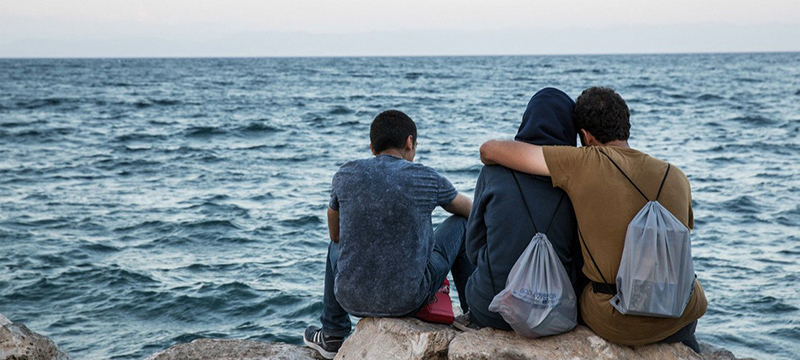Greece: Rights experts condemn ‘racist violence’ against asylum-seekers

Greece must adopt “safe and impartial” border policies and practices and hold its law enforcement officers accountable for abuses, a group of UN Human Rights Council-appointed experts said in a statement on Wednesday.
That’s the message from the group of eight experts, including Ashwini K.P., the Special Rapporteur on contemporary forms of racism, who urged Greece on Wednesday to investigate alleged violations against asylum-seekers.
They said that they were “particularly concerned” by the failure of the country’s security personnel and coast guard to provide “prompt and effective” assistance to migrants in distress and ensure safe disembarkation and adequate reception.
Rounded up
Earlier this month, the independent experts requested detailed information from the Greek Government on a case involving 12 asylum seekers from Somalia, Eritrea and Ethiopia, including a six-month-old infant, who had reached Greek territory only to be rounded up by masked men, stripped of their belongings and forcibly taken to the port of Mytilene in Lesbos on 11 April.
“The violence, which was captured on video – verified, and reported by the media – exposed the racist exclusion and cruelty of Europe’s border protection practices,” the experts declared.
“The past 12 months have been among the deadliest for asylum seekers, refugees and migrants of African descent and others on their journeys, particularly along sea and land routes in the Middle East and North Africa region, and in perilous Sahara and Mediterranean crossings,” they noted.
‘Deliberate and coordinated policy’
“While the investigation is ongoing, there is growing evidence of a deliberate and coordinated policy of forcible return and other dehumanising border control practices by Greece “going far beyond deterrence and in contravention of its international obligations”.
“The role of racism and systemic racism in the treatment of asylum-seekers must be confronted within any meaningful review of these practices,” the experts said.
States have obligations under international human rights and refugee law to address the dangers and risks faced by migrants, refugees and asylum seekers in host and transit countries.
A lack of regular migration pathways, coupled with restrictive migration policies, xenophobic rhetoric and many other push factors, operate to aggravate dangers and risks rather than mitigate them, the experts added.
Collective expulsions
They found the alleged unlawful, arbitrary, and collective expulsion of the asylum-seekers to be of particular concern, as it directly contravenes due process and the protections provided by the 1951 Refugee Convention and the European Convention on Human Rights.
The said it was important not only to safeguard the lives of persons of African descent on the move, “but to ensure that their human rights, security and dignity are also preserved with special protection measures for those – including women and children – who are at most risk,” the experts said.
Special Rapporteurs and experts who serve on Working Groups are not UN staff and are independent from any government or organisation. They serve in their individual capacity and receive no salary for their work.



